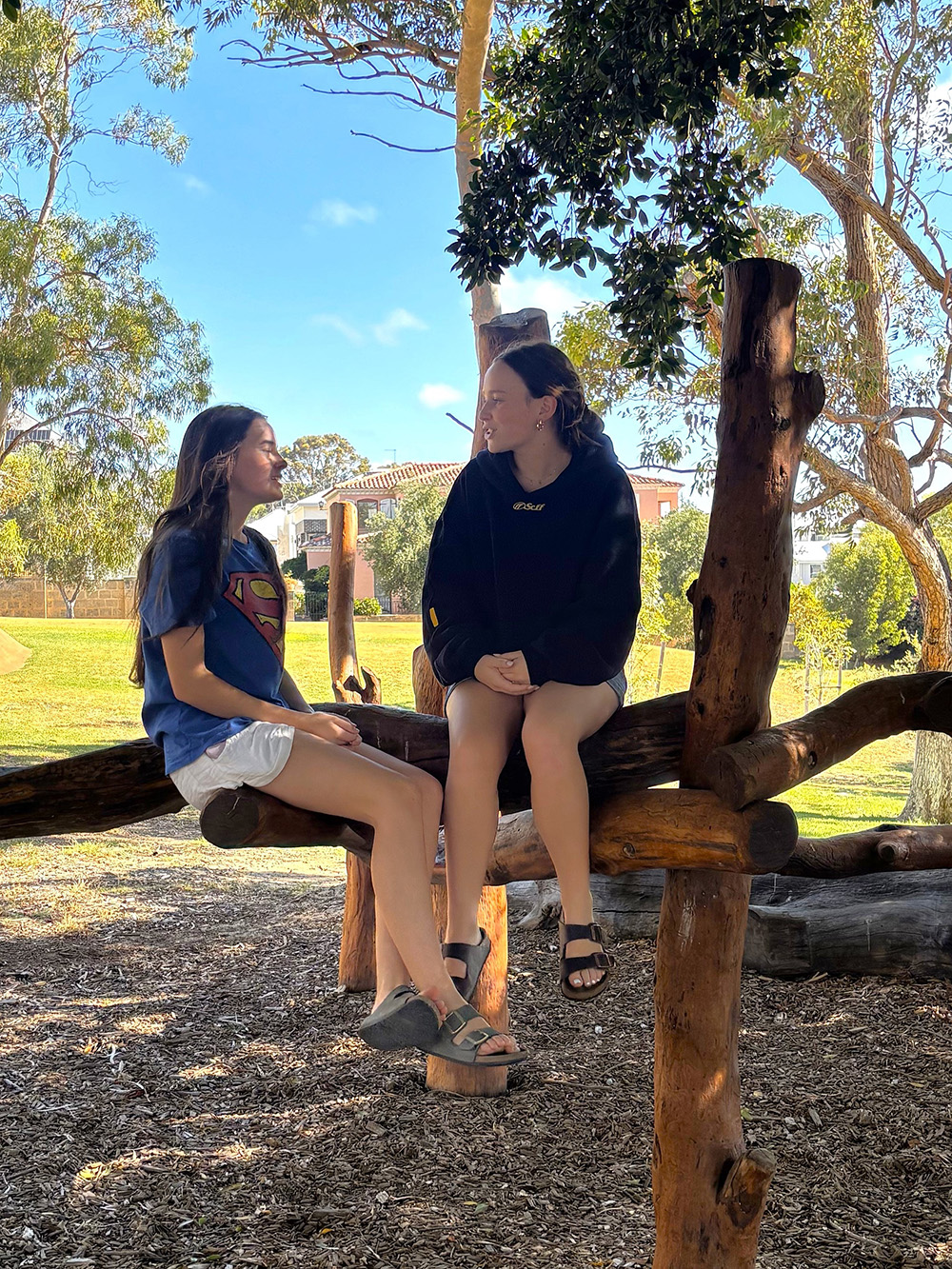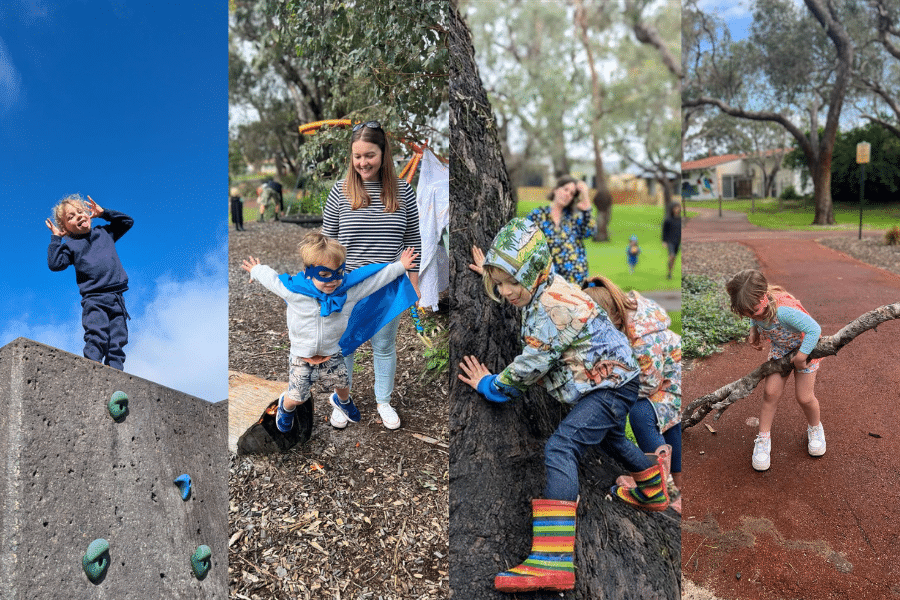Growing Stronger, Smarter, Happier: The Benefits of Nature Play for Kids
In a world with very full schedules, screens constantly competing for our attention and safety concerns keeping kids indoors, opportunities for unstructured play in nature are shrinking. Yet research shows that this kind of play is exactly what our kids need most – with the benefits of nature play having the potential to boost the brains, bodies and mental health of our children, as well as planting seeds for lifelong learning.
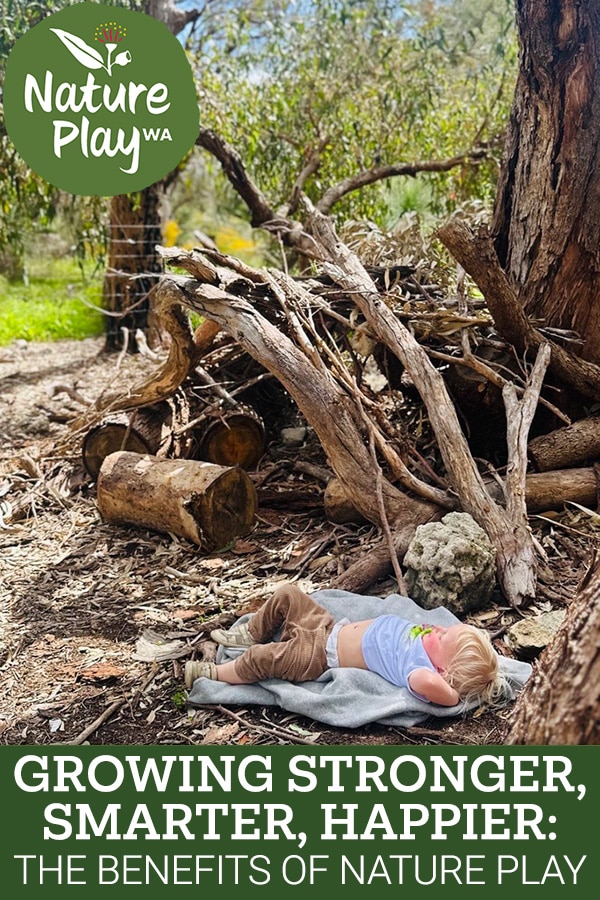
Play, The Natural Way
So, what is nature play? Nature play is unstructured, outdoor play. Fabulous for children of all ages, nature play happens when children are given the time, space and freedom to explore on their own terms – digging in the dirt, building cubbies, climbing trees, or inventing games with nothing more than sticks, leaves and their imagination!
Nature play is child-led, meaning children are free to direct their play, solving problems and making their own rules and decisions along the way, driven by curiosity, experimentation and discovery.
Nature play can happen anywhere outdoors – a backyard, school yard, playground or bush track, even a grassy verge can provide inspiration for play!
The Benefits of Nature Play for Kids
Play in nature supports many areas of development – supporting kids of all ages to be healthier, happier, smarter, and more connected to each other, their community and the environment. Below we’ve highlighted nine important areas of benefit to child development, learning and health.
Let’s Get Physical!
When it comes to physical benefits, nature play inspires children and young people to move their bodies in a range of diverse and challenging ways that can’t usually happen indoors– think climbing, jumping, running and balancing – which aids the development of strong gross and fine motor skills, co-ordination and core strength. Time spent in active play outdoors also strengthens bones and muscles, and cardiovascular health.
Disappointingly, the 2022 Report Card on Physical Activity for Children and Young People indicated that less than 25% of Australian children and young people meet the recommended physical activity guidelines.
Being active outdoors in nature has the major advantage of feeling more free and fun to children than many other forms of physical activity – whether it’s a game of tag, a scramble over rocks or logs, or a family nature walk, children are joyfully engaged whilst also building important foundations for health and fitness.
The Biggest Risk Is Taking Away All the Risks
Spending time in nature has powerful benefits for the mental health and wellbeing of children and young adults. In unstructured nature play environments, children are free to act with agency – choosing what matters to them, making decisions and creating from they own imaginations, without constant adult direction.
This autonomy nurtures confidence, independence and mindfulness.
The open-ended opportunities of natural play environments also encourage healthy risk taking – allowing children to test their own limits while developing confidence in their own physical abilities.
While society prioritises constant safety and supervision, oor mental health is a far greater risk to our children than the challenges of moderate “risky” play. Climbing trees, crossing a stream via stepping stones or exploring nature independently allows children to test their own limits and overcome setbacks. Far from being dangerous, these experiences provide the very conditions children need to develop coping skills, adaptability, resilience and a positive sense of self.
Whether it is in our schools, early childhood settings, or our homes or neighbourhoods, giving children the space and time to make choices and take risks in nature is not just valuable, it’s essential to their emotional health and wellbeing.
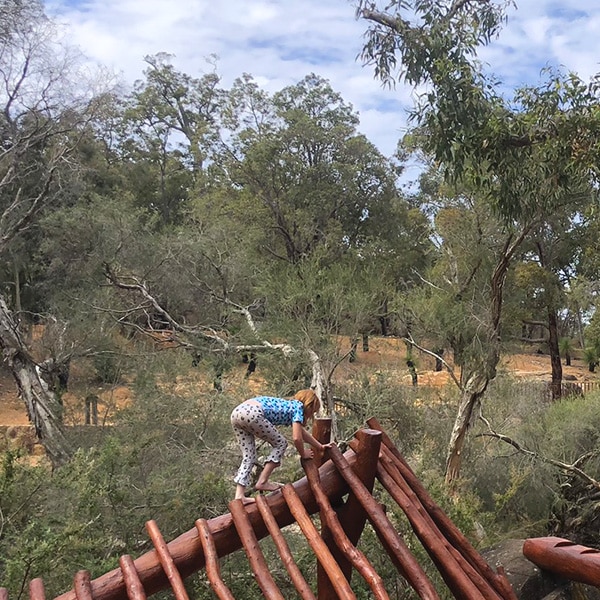
A Proven Path to Less Stress
Studies show that time spent outdoors increases feelings of happiness, excitement and relaxation. Time in nature results in an increase of feel-good chemicals within the body – endorphins associated with happiness and oxytocin to help alleviate stress and anxiety, whilst simultaneously lowering levels of cortisol, the body’s stress hormone.
Just as importantly, researchers have found that children who miss out on opportunities for outdoor play are more likely to experience anxiety, depression and feelings of helplessness.
Reduced stress, better moods and improved emotional regulation all help children to feel calmer and more in control, and while nature play feels joyful in the moment, it is also protective for the future – helping to raise happier, healthier adults.
Thinking Outside the Box
While it may not be surrounded by walls, nature really is a perfect classroom for the development of a host of lifelong thinking and learning skills. Research shows that unstructured play outdoors supports cognitive growth, helping kids to develop stronger focus and attention, and flexible thinking ability. Studies also link time in nature with improved executive functioning skills, such as longer attention spans, improved self-control and enhanced problem solving abilities.
While outdoor play can often feel unproductive and unimportant to adults, it really is the ‘work’ of childhood, providing a platform for strengthening important cognitive skills and abilities that will serve children well through school and beyond.
From sorting leaves, arranging stones or cataloguing treasures in nature, children are unknowingly employing organisational, scientific, mathematical and critical thinking skills. And sharing their finds and systems with others develops vocabulary and oral language skills.
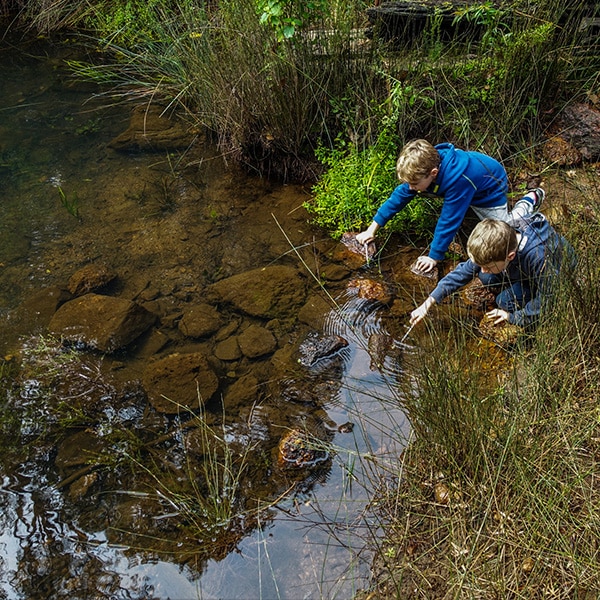
A Playground for the Senses
As explored in our Science of Mud Play article, sensory integration is the automatic brain process of receiving and organising information from all the senses to create a purposeful response or action. It is crucial to learning, behaviour and everyday functioning. When sensory information is processed efficiently, children can focus, interact and respond to their environment effectively, but when this information is poorly processed challenges in development, behaviour or learning may arise.
Fortunately, our brains are adaptable, and regularly experiencing a variety of sensory experiences is powerful for strengthening this sensory integration process. Being outdoors in nature has to be one of the most easily accessible, sensory experiences available to children, making it a fabulous tool for improving sensory processing.
Time in nature envelops children within rich layers of sensory inspiration – rustling leaves, shifting light, the scent and feel of soil – that feed their imagines and provide them with real life experiences to draw upon when they write, create and express their ideas.
An Unplugged Social Network
Unstructured time in nature with peers provides limitless opportunities for the development of children’s social skills.
From working together to build a cubby, helping each other climb up a tree, sharing natural resources or negotiating the rules of a game, children of all ages can learn and practice effective communication skills, co-operation, negotiation, conflict resolution and empathy as they work together to build, share and solve problems.
Establishing Roots: A Sense of Place
Nature play helps children and young people build the connections they need to develop a sense of place in the world. Spending time together outdoors encourages social connection amongst peers and with adults, even strengthening bonds across generations.
By exploring local landmarks and natural spaces, children can also learn about family or local history and culture, helping to nurture cultural awareness from an early age.
Outdoor exploration can also inspire a lifelong connection to the natural world; research shows that childhood experiences in nature provide a strong foundation for the development of both socially conscious and environmentally aware future citizens.
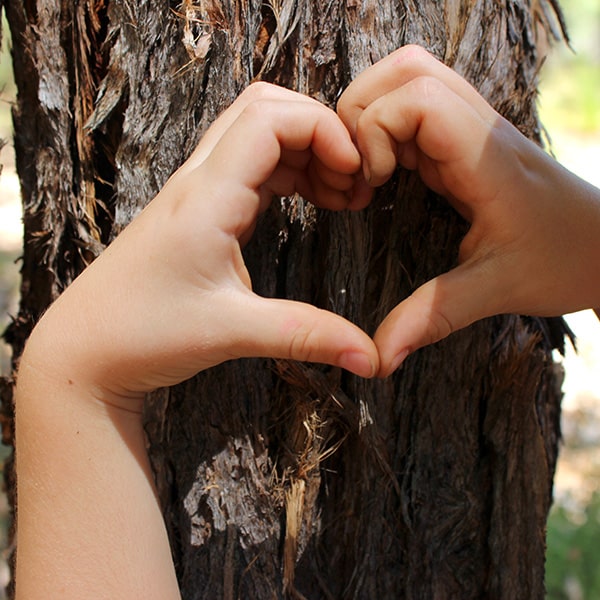
Healthier From the Inside Out
Did you know that spending time outdoors provides humans with a natural immune boost? Research published in the International Journal of Environmental Research and Public Health suggests that exposure to diverse microbes in outdoor environments has been found to strengthen the body’s immune system, while sunlight provides vitamin D which is essential to strong bones, immune health and general wellbeing.
Simply put, playing outside helps kids grow healthier from the inside out.
From Sunshine to Sweet Dreams
This might be one of my favourite benefits of regular nature play – its function as a natural sleep aid! Kids who regularly spend blocks of time playing outside generally fall asleep more quickly, wake less during the night and enjoy deeper, more restful sleep. Daylight exposure helps to re-set the body’s internal clock and boost melatonin production, while running, climbing and exploring lets kids burn off excess energy prior to sleep.
American author and social commentator, Richard Louv reminds us that ‘time in nature is not leisure time – it’s an essential investment in our children’s health.’ In a world where screens and safety are replacing tree climbing and mud pies, his words have never been more relevant. If we truly want to raise stronger, smarter and happier children, we must reclaim nature play – not as an optional extra, but as a vital and valuable component of childhood.

